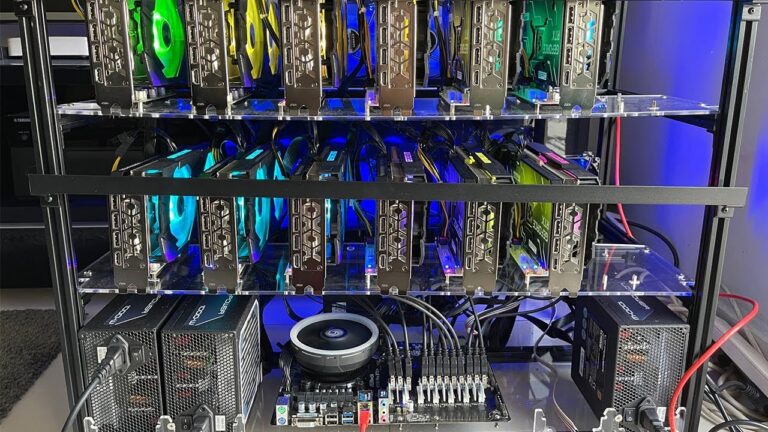I lost my job 3 times. First, the radio station I’ve worked in for 7 years closed down. It was my dream job, the first job, I was devastated. It happened on my birthday .. what a joy!
It was hard because of my connection to a great team of people, having to lose my first job etc. Financially I was actually doing OK, was already working 2 jobs (said job and a web designer position at a friend’s small company), so, losing this paycheck wasn’t such a huge deal. Yeah, I’d lose 1/3 of my salary (the web design job was paying twice as much), but I had no debt, no family. I was in a good position.
The second job I lost was at the friend’s company.
She was planning to close down and I was already getting ready for an interview with another radio station that was paying as both previous jobs did. My friend was nice enough to keep me on her payroll until I got the job, so my second ‘unemployment’ experience wasn’t a big deal either: I’d just transition to a better paying job, again in the radio business.
The third time hurt the most.
I was in debt. I had business taxes, my bank payments, plus the ‘natural’ need to feed oneself, maybe buy some clothing, you know, regular expenses.
Based on this horrible experience, I’d like us to devise few tips to stay afloat when that time comes: to get unemployed.
1. Emergency fund
This is no.1 no matter how you’d take it. I had no savings back then and only a miracle, my amazing family and a huge deal of stress and overworking from my part helped me stay afloat. It’s not something I’d repeat, it’s not something I’d advise anyone to go through.
So get your emergency fund in place and leave it there. At least a fraction of it. ‘Mark’ it as ‘the really bad day when I’d be losing my job‘.
Can’t happen to you?
Oh, well, I was working at the BIGGEST media trust in my country, with the best salaries and perspectives. And yet they tanked.
So, it can and it will probably happen to you.
When it does, you’d be prepared. If not, you’ll have some money stashed aside for something else.
2. Never stop learning
You read a lot about my web design business and probably think I’ve graduated some cool IT college.
Nope, all I know it’s from my own ‘school‘. I learned by myself, reading articles, books and doing a lot of web design work. And I mean A LOT. For at least 7-8 years I’d spend about 10 hours/day doing and learning.
Every spare minute I had was spent doing web design. It paid off beautifully, helping me transition to a new career/business, but we’re talking some huge effort.
While you’ll probably not end up as a web designer, do try to learn. Be well prepared in your own specialty, learn something new.
I used to say that, no matter how bad our bosses turn out to be or how horrible our jobs are at the moment, what we have ‘stashed’ in our brains is something no one can touch. I’ve spent years learning as much as I could and will probably do this for as long as I’ll have a functional brain.
3. Keep your mind open to new possibilities
I know people who could easily do at least 2-3 new things (and earn a lot), but are still stuck on their bad paying job and constantly live in fear they’ll soon become unemployed.
My initial ‘training’ was to become a teacher. I actually studied this in high-school and college as well. And worked for a decade in the radio business, which had nothing to do with my studies. Then started web design, which was even further from anything I learned.
Right now I am working as a web designer for my own small company, but maybe in 5 years this will not be the case anymore. I’ll probably turn into a personal trainer. Or a private tutor or .. who knows ..
I am trying to keep my mind as open as possible to any new challenges. If tomorrow my business will stop pay our bills, I’ll professionally ‘morph’ into someone else once again with no regrets.
The more possible ‘ways’ you have ahead, the better you’ll do. Just keep on learning and expand your skills, you never know what tomorrow might bring.
4. Never, and I mean NEVER, leave a job ‘smashing’ the door behind you
Losing a job is a horrible experience, it takes a huge emotional toll on your soul and mind. No matter how bad you feel, do not act irrationally. Don’t make a huge deal, don’t become annoying. Of course, if you are being fired illegally, do take any legal action possible.
But otherwise keep your cool and move on.
Why is this important?
Because, just as in life, when it comes to jobs/businesses the wheels are turning and the one you slapped for firing you yesterday might be the one who can hire you tomorrow.
In most businesses there aren’t too many possible employers. Not only your reputation will proceed you and compromise any possible chances to get out of unemployment, but you might even meet your old ‘foes‘ there. And it wouldn’t be pretty.
Always be known as the professional who can take a ‘no’, who has been calm and respectful no matter the circumstances. Nobody wants to hire a troublemaker, so make sure you are not known as one.
5. Start a small ‘biz’ on the side
When I was working as a radio DJ, my web design business helped bring in few more bucks/month and it finally turned into my new job / full time business as soon as my unemployment happened.
You don’t have to be working day and night for your small side-hustle, but it can help a lot. Not only you can use some money for your emergency fund for instance (or just afford more stuff), but it can turn into your new business as soon as you are laid off.
6. Keep your CV up to date
The moment we get a good job, we start being more relaxed when it comes to promoting our skills and experience. This is why many CVs remain un-edited for years, even if we should constantly spruce them up. Don’t leave your curriculum vitae untouched, improve on it and get it ready.
If you were to lose your job tomorrow, an updated CV can already be sent to a potential employer, without having to wait for days / weeks to get a better version of it.
7. Constantly advertise your skillset
I know people who have gone from good jobs to better ones all the time. I actually married one 🙂
My husband has been constantly promoting himself, while also doing a tremendous job at the company that hired him. There were great job offers for him at least monthly from various competing firms, who were well aware of how well he did his job as a civil engineer.
It’s a good idea to be well known in the business and have other companies fight for you. This way, even if you come to lose your job, there are new ones lined up at any moment.
What else would you advise us to do in order to better prepare for unemployment? What worked for you?




